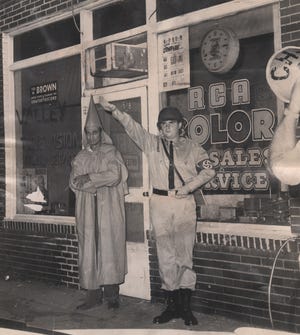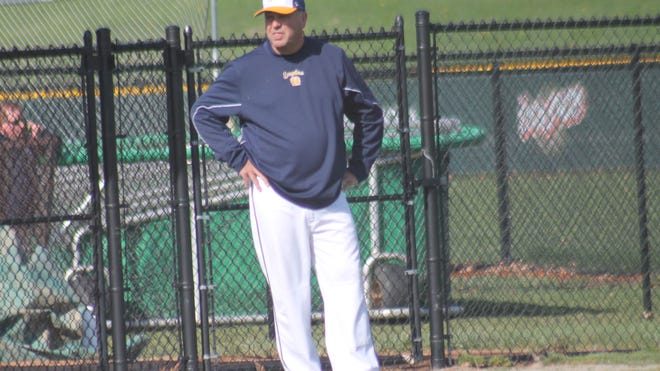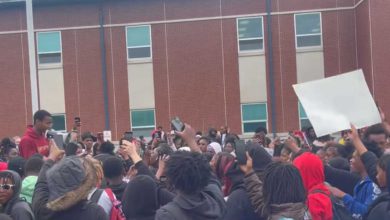
Former President Donald Trump's lawyers Monday cited a Cincinnati case involving a Ku Klux Klan rally in his defense, saying the case showed Trump's Jan. 6 speech was protected by the First Amendment.
The trial, starting Tuesday, marks the first time a president will be tried for impeachment twice. Senators who will be jurors were also witnesses to the insurrection as they evacuated the chamber, which was occupied by rioters.
Second Trump impeachment trial:Senate shapes contours, wrestles with whether to call witnesses
In his filing with the U.S. Senate, Trump's lawyers said the 1969 ruling in Brandenburg v. Ohio means speech – even if it "incited illegal conduct"– could be protected by the Constitution.
The landmark case has been cited repeatedly after a mob stormed the Capitol Jan. 6. Trump had spoken to a crowd shortly before about a "stolen" election and going to the Capitol to "fight like hell" and "take back our country."
In its decision, the Supreme Court said speech advocating for illegal activity is protected, unless it “is directed to inciting or producing imminent lawless action and is likely to produce such action.”
The Hamilton County case at the center of the court’s decision dates back to the summer of 1964.
Clarence Brandenburg, described in news stories as the owner of an Arlington Heights television repair shop, had invited a news crew from WLWT-TV to attend a Ku Klux Klan rally at a farm near Coney Island.

A reporter and cameraman filmed the event, which was later broadcast nationally.
The film showed 12 hooded people, some carrying firearms, gathered around a large wooden cross, which they set on fire.
In another scene, a hooded person later identified as Brandenburg, said, in part: “If our president, our Congress, our Supreme Court, continues to suppress the white Caucasian race, it’s possible that there might have to be some revengeance (sic) taken.”
He then talked about marching on congress on the Fourth of July, “400,000 strong.”
Hamilton County prosecutors charged Brandenburg under the Ohio Criminal Syndicalism Statute, a 1919 law that prohibited advocating for violence “as a means of accomplishing…political reform.”

Brandenburg was convicted and sentenced to one to 10 years in prison, according to Enquirer archives. He challenged the conviction and the case made its way to the U.S. Supreme Court, which found the Ohio law unconstitutional.
In their filing, Trump's lawyers wrote in part:
In Brandenburg v. Ohio, the Supreme Court formed a test that placed even speech inciting illegal conduct within the protection of the First Amendment. ...
Absent an imminent threat, therefore, it is expressly within the First Amendment to advocate for the use of force; similarly, it is protected speech to advocate for violating the law; and as Mr. Trump did neither of these things, his speech at all times fell well within First Amendment protections. He thus cannot be subject to conviction by the Senate under well-established First Amendment jurisprudence. ...
Mr. Trump’s speech on January 6, 2021 was protected political speech, that which receives the strongest protection under the First Amendment, when the protections of free speech are at their highest.148 In fact, under Brandenburg, there is no doubt that the words upon which the article of impeachment issued could never support a conviction, as there was plainly no advocacy of “lawless action” and the words, as stated, can hardly be interpreted to be “likely” to “incite imminent” violence or lawless action.
Source link








